Netball: Dangerous play focus of international rule changes
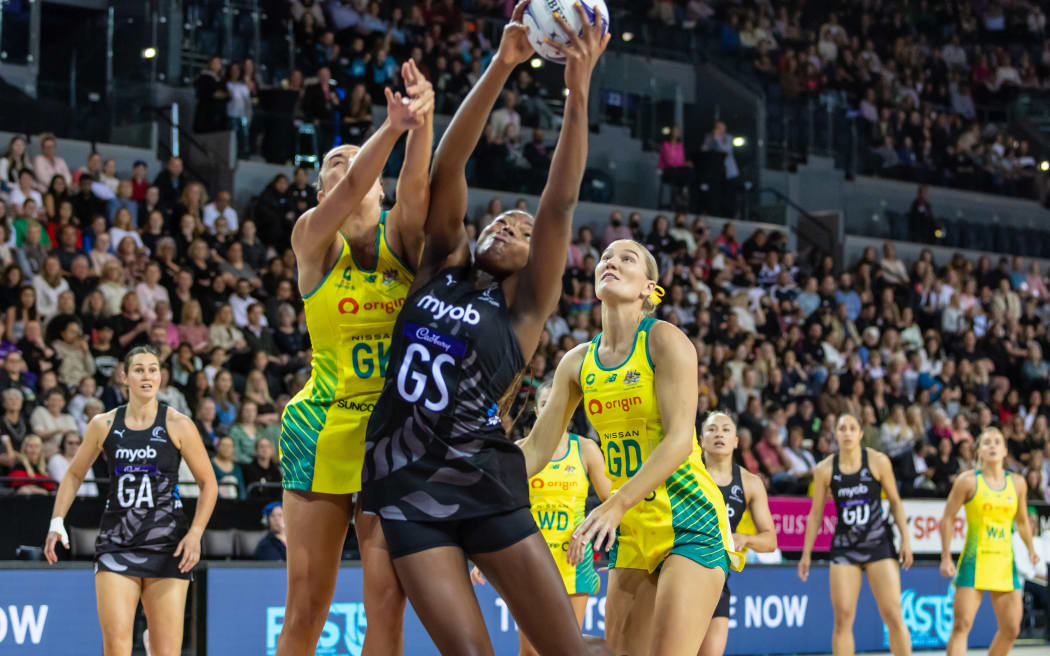
Netball has been getting increasingly physical at the elite level.
Photo: Aaron Gillions / www.photosport.nz
A crack down on dangerous play, overhauling a farcical short pass rule, and the ditching of some of the more irksome international netball rules will be put to the vote in Cape Town later this month.
After reviewing 244 submissions World Netball’s Rules Advisory Panel (RAP) has narrowed down a set of proposals for inclusion in the revised Rules of Netball, which will be considered just before the World Cup in South Africa.
The over-arching principle for the review was player safety.
In a communication to member countries World Netball says “this area is increasingly a priority in other contact and collision sports as a result of long-term consequences of injuries, particularly concussion, and has significant legal and liability implications.”
It said the most pressing concerns involve head, neck and concussion incidents.
“And to ensure appropriate action is taken to manage and address instances of reckless and dangerous play which endanger player safety.”
New Zealand shooter Grace Nweke was caught in a swinging arm around the neck by Australian defender Courtney Bruce when they both feel to the floor in January’s Quad Series.
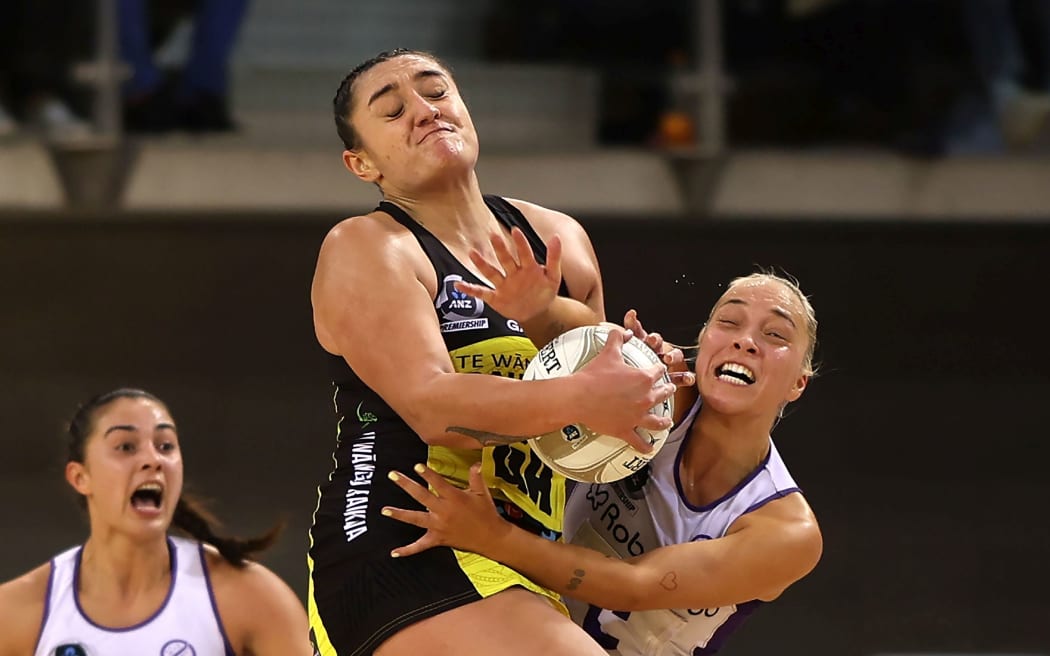
Netball has been getting increasingly physical.
Photo: photosport
Silver Ferns coach Dame Noeline Taurua subsequently spoke about the sport needing to take a tougher line on head contacts.
Under rewritten contact rules a lot of emphasis is placed on the need for players to be able to land safely after jumping.
RAP have also rewritten Game Management rules to clearly outline the process around sanctions for more serious incidents.
Cautions are scrapped but umpires would be able to advance up to half a third and/or escalate a free pass to a penalty pass.
As with the current rules, the next step is issuing a warning, then suspending a player for 2 minutes, and for the most serious offences ordering a player off for the rest of the match.
The difference under the proposed rules is that a team may replace the ordered off player at the end of four minutes with another player.
It’s rare for players to be suspended, let alone ordered off but former Silver Ferns coach Leigh Gibbs believes there will be a lower tolerance to any dangerous play.
“The feeling is that the game has become untidy, persistent infringing, and with the change of game management rules it’s just really about getting on top of play that is dangerous, and foul play which is not in spirit of the game,” Gibbs said.
“And let’s say a player was ordered off in the first five minutes of a game between closely matched teams, basically the contest is over. It’s still penalising because four minutes is a decent chunk in netball, however it’s not so much that if it happened early that it would ruin the game.”
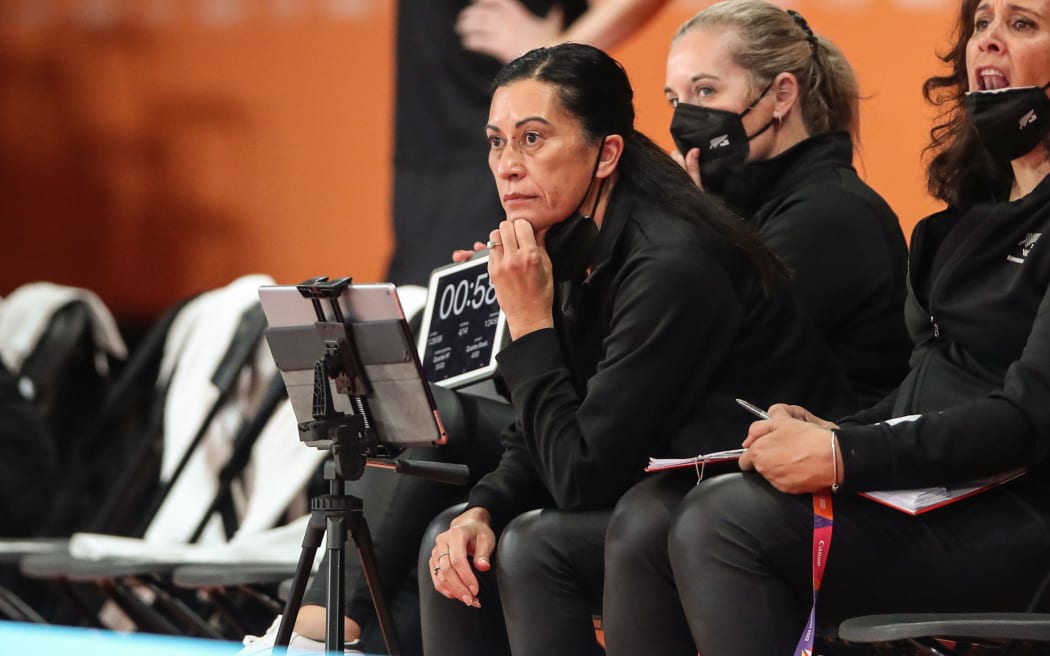
Dame Noeline Taurua was less than impressed by some of the physicality during January’s Quad Series
Photo: PHOTOSPORT
Gibbs, who served on World Netball’s rules advisory panel a few years ago, is currently on the international governing body’s Coaching Advisory Panel.
RAP has consulted closely with the Coaching Advisory Panel during the process of reviewing the rules.
Gibbs thinks the proposed changes are positive overall and give more clarification, particularly around how umpires should deal with contact that could lead to head and neck contact.
“We want the game to continue to evolve and be the great spectacle we know it can be safely, because that concussion piece is important and when you look at what’s happening in rugby, it’s frightening.”
The rules state an umpire ‘must’ suspend a player in instances of dangerous play and a player ‘must always’ be ordered off for intentional or highly reckless acts of dangerous play that endanger player safety.
The other change is that a team doctor, who is able to administer concussion protocols, will be able to sit on the team bench.
Short pass
The current short pass rule, which came about in a rule revision at the start of 2020, has been hugely unpopular after it reduced the space required between a passer and receiver.
Team-mates only have to allow room for an opposing player to be able to intercept the pass with a hand.
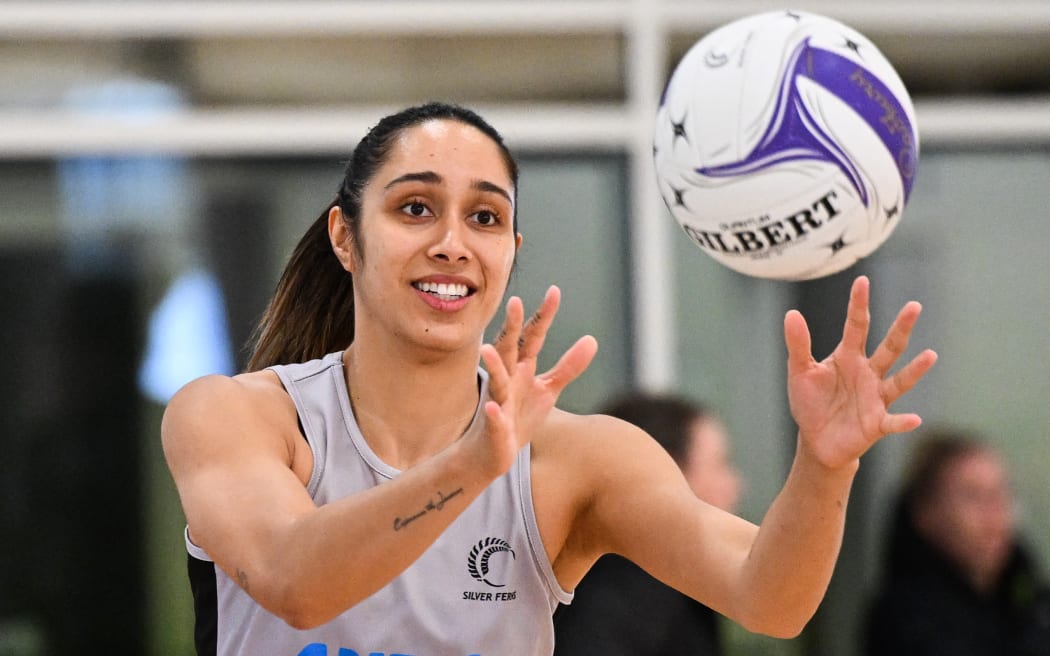
The short pass rule could be overhauled.
Photo: Andrew Cornaga/www.photosport.nz
“The current short pass rule in my opinion has taken the defence out of the game and we see that demonstrated by attacking teams just about handing the ball to each other,” Gibbs said.
RAP want to ensure that every pass is contestable and under the proposal the trajectory of the ball must be at least three feet before it is caught or touched by a player on the same team.
It’s a step further than what it was in the past when there had to be enough room for a third player between the hands of thrower and catcher.
“The difficulty has been I guess how do you describe the distance. People come in different shapes and sizes.”
Gibbs said the intent is right but more clarification might be needed on defining trajectory – “Is trajectory dead horizontal, does it have a bit of vertical, what if it’s a bounce pass?”
Bye-bye toss up?
If congress votes in favour, all references to the toss up will disappear from the rule book and be replaced with a method of awarding an alternating free pass to a team for things like simultaneous infringements.
RAP concluded that the toss up has become a dying skill because it is used so infrequently. That was evident during January’s Quad Series when players looked perplexed when a very rare toss-up was called during the Diamonds-Silver Ferns game.
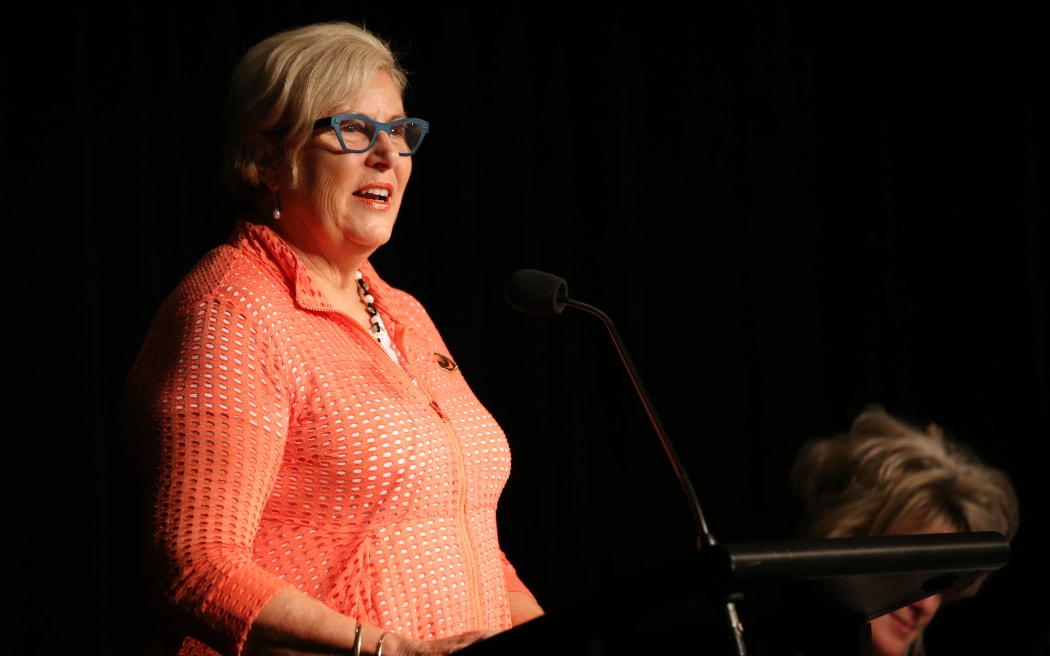
Former Silver Ferns captain and coach Leigh Gibbs
Photo: ©Michael Bradley Photography 2017.
Under the proposal the loser of the pre-game coin toss will have the first free pass under the procedures for alternating possession and the scoring bench will have a signal for the next direction of a free pass.
But Gibbs view is that the toss up still has a place in the game.
“I believe the toss up could actually be legitimately used more often. There are times in games I think how can the umpire make a call and the only fairness is a toss up.
“I think umpires have been seen as indecisive if they do a toss up but sometimes actually they can’t make a decision because the situation is simultaneous or it’s too hard to determine.”
Gibbs said at least the toss up gives teams a 50/50 chance to win the ball, rather than the ‘alternating possession’ system being proposed.
“And if there is only one alternating possession in a game, only one team is getting that ball, where at least with a toss up it’s a physical skill and fair game.”
No more faking injuries
In what will be welcome news to many, players will no longer have to fake injuries for a substitution to happen if the new rule is passed.
For years players have been calling for ‘injury time’ as a way of making substitutions during the game, which isn’t viewer friendly and slows down the game.
The proposed rule change will simply allow an on-court player to ask an umpire to hold time during to be substituted, which is the system used in the ANZ Premiership.
“Thank goodness …that will really make the game more professional, it’s crazy that players have to pretend they are injured,” Gibbs said.
What other changes have been flagged?
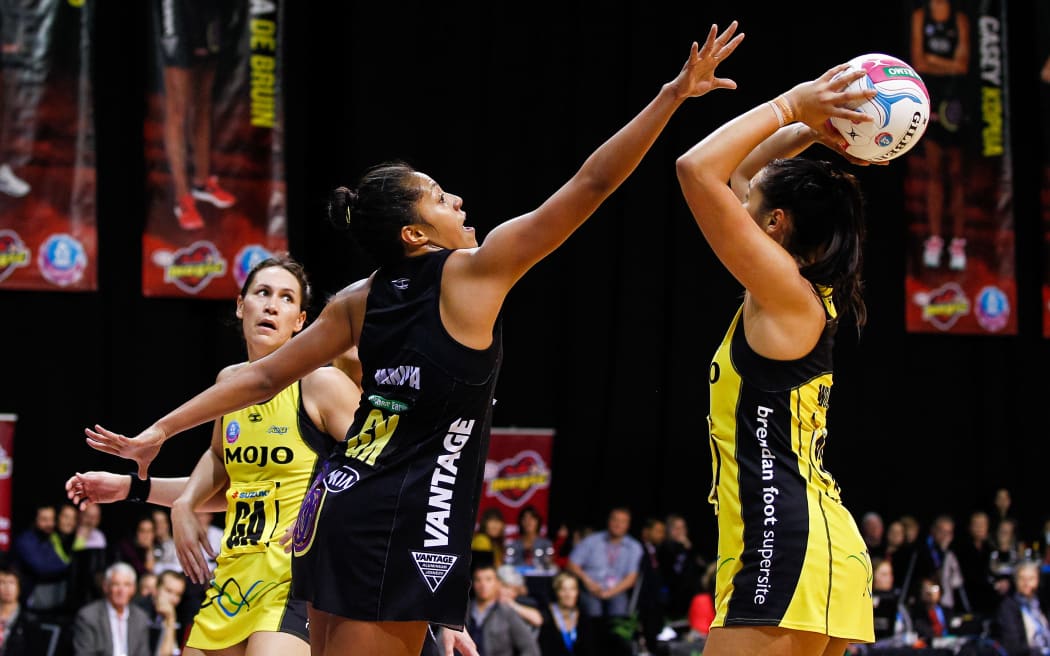
Shooters could be rewarded for a successful shot in the last seconds of the game if the whistle is blown after the ball has left the hands,
Photo: Bruce Lim / www.photosport.co.nz
On-court players will be able to appeal to the umpires to check with the scorers which team has the next centre pass in an effort to mitigate the risk of the incorrect team taking the pass.
The issue was highlighted earlier this year in Australia when the Collingwood Magpies potentially lost a Super League game when an umpire lost track of the correct centre pass.
A bugbear for many netball fans is that shooters are currently denied a goal if the whistle to end play is blown before the ball has passed completely through the ring.
But under the rule changes shooters would be rewarded for a successful shot in the last seconds of the game if the whistle is blown after the ball has left the hands, which Gibbs said will make life easier for umpires too.
“There’s so much for the umpires to be observing and to observe whether it’s gone through the ring verses has it left the hands is so much easier to determine.”
The Rules Advisory Panel, which includes former Silver Fern coach Waimarama Taumaunu and top New Zealand umpire Jono Bredin, will present the proposed rules changes at the World Congress.
For the rule changes to pass, they must receive at least 75 percent support at Congress. Each Full Member country can appoint up to two delegates to attend Congress.
RAP will then prepare a draft of the revised Rules of Netball, which can include further amendments and final input from World Netball’s Medical Advisory Panel.
The rule changes, if approved, will come into force from next year.
For all the latest Sports News Click Here
For the latest news and updates, follow us on Google News.

